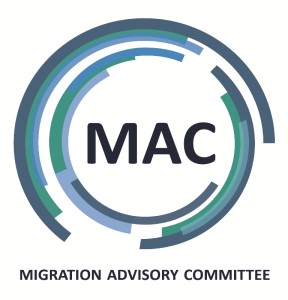Letter to the Home Secretary: professionals in IT and engineering (accessible)
Published 29 May 2025
Migration Advisory Committee
2nd Floor Peel Building NE
2 Marsham Street
London
SW1P 4DF
enquiries@mac.gov.uk
29 May 2025
Rt Hon Yvette Cooper MP
Home Secretary
2 Marsham Street
London
SW1P 4DF
Dear Home Secretary,
I am pleased to inform you that we have published our review of Professionals in IT and Engineering, fulfilling your commissioning letter of 6 August 2024. We agreed with the Home Office to delay the publication of this report until after the publication of the Immigration White Paper (IWP) on Monday 12 May. This has allowed us to reflect on the contents of the White Paper in our review.
We support the idea of regularly reviewing occupations or sectors, especially where it seems they may have an overreliance on the immigration system. However, in IT and Engineering this overreliance is not readily apparent, and at least from an immigration perspective, we have not found major problems to be fixed. Usage of the immigration system by the IT and Engineering sectors is broadly proportionate, within the rules and clearly responding to demand in the UK labour market. Regardless of whether there are domestic skills shortages, the UK benefits from healthy growth in IT and Engineering, which contribute to productivity across other sectors and the development of a high-skilled, high-wage economy. Some of the most acute shortages lie in technical occupations below graduate level, and therefore we think that that the government should consider widening the range of occupational levels they ask us to review in the future.
This is not to say that there are not challenges in the sectors. Whilst Engineering is a more established sector and has more settled pathways and support networks for workers, there is a lack of diversity and flexible working, and training is often stymied by the high cost of running courses. For IT, the pace of change in what is a fast- growing industry operating in a global marketplace adds a layer of complexity in that the skills required can change faster than training providers can teach them.
We make no formal recommendations in our report; we believe it would be unwise to make system-wide changes on the basis of reviewing two groups of occupations. However, we do make a number of observations and suggestions that the government may wish to consider, relating to both immigration and skills policy.
We also welcome the proposal in the Immigration White Paper for the MAC to review salary thresholds and associated discounts and note the intention to abolish the Immigration Salary List (ISL) in the Skilled Worker route, which we support.
Throughout this review we have worked closely with the members of the Quad (referenced in the IWP as the Labour Market Evidence Group) and the Devolved Nations and will continue to do so to improve the quality and consistency of relevant data, and to establish an approach to future reviews that utilises the specialisms of each Quad member. Direction from the government may be required to prioritise the extent that the Quad initially focuses on occupations that have high numbers of visas, critical importance for Missions or the Industrial Strategy, the most acute skills shortages, and potential to support wider labour market objectives.
On behalf of the Migration Advisory Committee,
Yours sincerely,
[signed]
Professor Brian Bell
Chair, Migration Advisory Committee
cc:
Seema Malhotra MP, Minister for Migration and Citizenship
Antonia Romeo, Permanent Secretary
Simon Ridley, Second Permanent Secretary
Daniel Hobbs, Director General Migration and Borders Group

